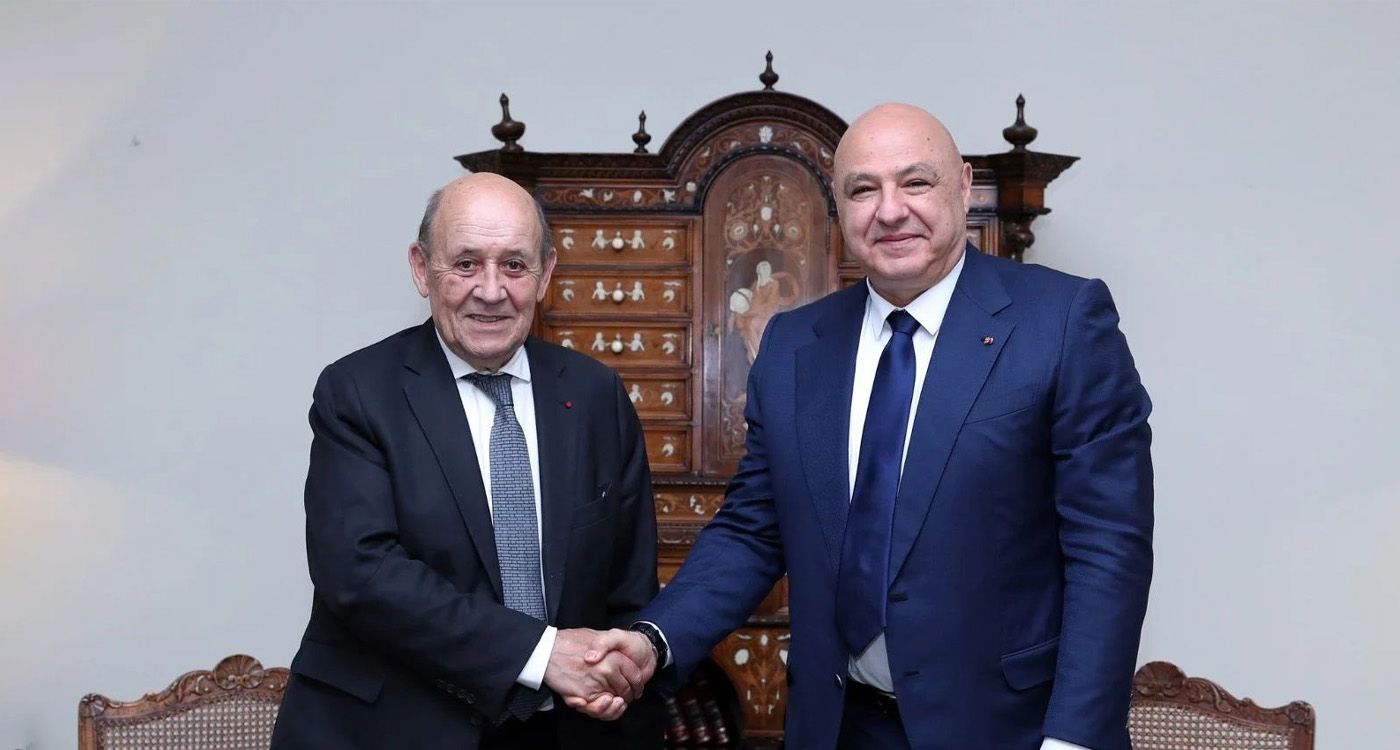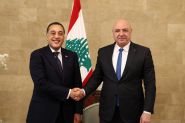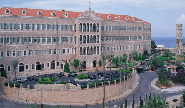
French President Emmanuel Macron’s special envoy for Lebanon, Jean-Yves Le Drian, visited Beirut to discuss international coordination, particularly between Paris, Washington and Riyadh, as well as preparations for two major conferences on Lebanon. Support for the Lebanese Army was one of the central issues on the agenda.
“This visit is part of France’s continuing mission to support and accompany the Lebanese government in its recent decisions, namely ensuring the state’s monopoly over weapons and launching reforms,” a diplomatic source told This is Beirut.
Le Drian’s trip comes at a time of growing international pressure on Lebanon to advance economic, institutional and security reforms, as well as to move toward the disarmament of Hezbollah. This step is seen as a key condition for holding the two international conferences that are meant to help Lebanon recover.
The envoy began his visit at Baabda Palace, where he met President Joseph Aoun. During the talks, the president expressed gratitude for France’s role and for Macron’s involvement in preparing the two conferences, one focused on supporting the army and the other on economic recovery and reconstruction.
Aoun stressed that Lebanon’s economic and financial reforms are being pursued “not only to meet international demands, but also because the Lebanese themselves are convinced these reforms are essential for recovery.”
“These reforms are what will allow Lebanon to regain the confidence of the international community and maximize the chances of success for the two international conferences,” the diplomatic source added.
According to the same source, the effort “is not about checking boxes or fulfilling conditions just to unlock aid, as was the case in the past. It is about ensuring the highest possible chances of success for the conferences.”
Priority on the Army Conference
It is “very likely that the conference in support of the army will take place before the one on reforms,” the source said.
This is partly because the international community is still waiting for Lebanon to finalize its reform strategy, with key issues such as restructuring the electricity sector and passing a budget deficit law unresolved. It is also because there is “broad enthusiasm for supporting the army and strong international consensus, particularly between France and the United States, on this point.”
Evidence of this came Wednesday when the Pentagon approved 14.2 million dollars in aid to the Lebanese Army. In a statement issued on September 10, the U.S. Department of Defense said the funds were intended “to strengthen the army’s ability to dismantle militia networks and infrastructure, including Hezbollah’s.”
In this context, Aoun reaffirmed after his meeting with Le Drian that the Lebanese Army continues to implement its security plan. The plan, starting in the area south of the Litani River, involves disarming Lebanese and Palestinian factions.
He noted, however, that the continued presence of Israeli forces in parts of Lebanese territory has prevented the army from fully deploying to the international borders.
“Lebanon has repeatedly asked Israel to respect the ceasefire announced on November 27, but all these requests have gone unanswered. Israel continues its attacks, has not handed over Lebanese prisoners to the authorities, and has failed to implement Resolution 1701,” Aoun recalled.
He stressed that French and American pressure on Israel to halt hostilities would greatly facilitate the army’s security plan, which was approved by Lebanon’s cabinet on September 5.
Aoun also said the army remains deployed nationwide and along the borders, setting up checkpoints and receiving strict orders to seize illegal weapons and ammunition.
The president thanked France once again for its diplomatic role in renewing the UN peacekeeping force in Lebanon (UNIFIL) for 16 months. He said this period would allow an orderly withdrawal of UN troops while giving the Lebanese Army time to build up its capacities, particularly in the event of an Israeli withdrawal and an end to attacks.
For Aoun, support for the army is just as crucial as economic recovery. “The role of the army and security forces in maintaining stability creates the right climate for reconstruction and economic revival,” he said.
He reaffirmed that national unity remains intact despite political disagreements, which he described as normal in a democracy.
For his part, Le Drian reiterated France’s commitment to supporting Lebanon, especially in preparation for the two international conferences. He also highlighted encouraging results from his recent meetings in Saudi Arabia, noting that Lebanon’s recent steps are viewed positively and could strengthen international support.
“Saudi Arabia could very well decide to join this international effort, particularly as regional and Western countries are beginning to restore their confidence in Lebanon,” the diplomatic source said. He added that Le Drian is likely to make more frequent visits to Beirut.
Institutional Meetings
After Baabda, Le Drian visited Ain el-Tineh to meet Parliament Speaker Nabih Berri, then headed to the Grand Serail for talks with Prime Minister Nawaf Salam.
His schedule also included a meeting with Army Commander Rodolphe Haykal and other officials to discuss implementation of the security plan, monitoring of arms transfers in Palestinian camps, and efforts to combat cross-border smuggling.



Comments